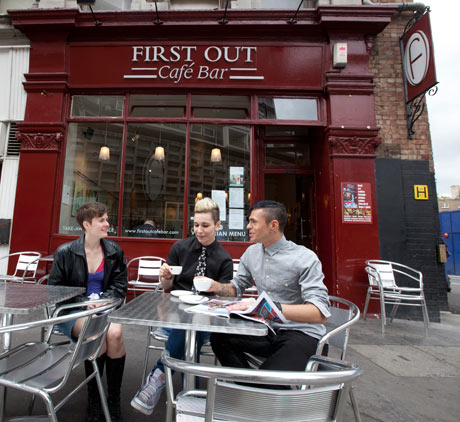 |
Glendale's Commission on the Status of Women holds
self-defense classes in April on city property
for women and girls in honor of
Sexual Assault Awareness Month.
|
Location: Glendale, California, USA
Closed: April 2014?
So the Men's "rights" (supremacy) groups are even threatened by a privately funded self-defense class for women. Never mind that there are all kinds of sports and fighting options that are just for men. Can't let the ladies learn to fight back on their own, can we?
If you can manage to read the gag-inducing comments, it's really about the menfolk simultaneously denying and promoting sexual violence against women. But that's no surprise. Standard issue propaganda for the Men's Rights dudes.
From the Los Angeles Times:
Men's group objects to women's self-defense classes in Glendale
March 28, 2014, 4:17 p.m.
A men's group is objecting to Glendale offering free self-defense classes to women only, saying the city is violating federal and state civil rights laws that protect against sexual discrimination.
The National Coalition for Men outlined its opposition in a letter sent this month to city officials, the Glendale News-Press reported.
For years, Glendale's Commission on the Status of Women has held self-defense classes in April on city property for women and girls in honor of Sexual Assault Awareness Month.
This is the first time the National Coalition for Men, which was established in 1977, has sent a letter asking the city to open the classes to men and boys.
Harry Crouch, president of the San Diego-based nonprofit that aims to end gender-based stereotypes, said his organization was only recently made aware of the classes.
According to the letter, the classes, which are set to take place in the Glendale Police Department's community room twice next month, "violate a host of federal and California anti-discrimination laws."
"Such female-exclusive or male-exclusive actions by government and private actors violate the equal protection clauses of the U.S. Constitution and California Constitution," the letter states.
"It always astounds me that some of our governmental agencies who are charged with protecting us from violations of law simply acquiesce to things like this," Crouch said, adding anyone can be a victim of sexual assault.
In the United States, about 10% of all sexual assault victims are male, according to statistics provided by the Rape, Abuse and Incest National Network.
Sexual assault includes sexual touching, forced penetration and other crimes. Since receiving the letter, city officials have done preliminary research into the matter and have found that there may be federal law that permits the self-defense classes for women, but more research into state law is planned.
After the research is complete, officials intend to send a response to the National Coalition for Men as well as review the class structure, if necessary.
The classes are paid for by fundraising by the Commission on the Status of Women, said Senior Assistant City Atty. Lucy Varpetian.
For years, Glendale's Commission on the Status of Women has held self-defense classes in April on city property for women and girls in honor of Sexual Assault Awareness Month.
This is the first time the National Coalition for Men, which was established in 1977, has sent a letter asking the city to open the classes to men and boys.
Harry Crouch, president of the San Diego-based nonprofit that aims to end gender-based stereotypes, said his organization was only recently made aware of the classes.
According to the letter, the classes, which are set to take place in the Glendale Police Department's community room twice next month, "violate a host of federal and California anti-discrimination laws."
"Such female-exclusive or male-exclusive actions by government and private actors violate the equal protection clauses of the U.S. Constitution and California Constitution," the letter states.
"It always astounds me that some of our governmental agencies who are charged with protecting us from violations of law simply acquiesce to things like this," Crouch said, adding anyone can be a victim of sexual assault.
In the United States, about 10% of all sexual assault victims are male, according to statistics provided by the Rape, Abuse and Incest National Network.
Sexual assault includes sexual touching, forced penetration and other crimes. Since receiving the letter, city officials have done preliminary research into the matter and have found that there may be federal law that permits the self-defense classes for women, but more research into state law is planned.
After the research is complete, officials intend to send a response to the National Coalition for Men as well as review the class structure, if necessary.
The classes are paid for by fundraising by the Commission on the Status of Women, said Senior Assistant City Atty. Lucy Varpetian.
























